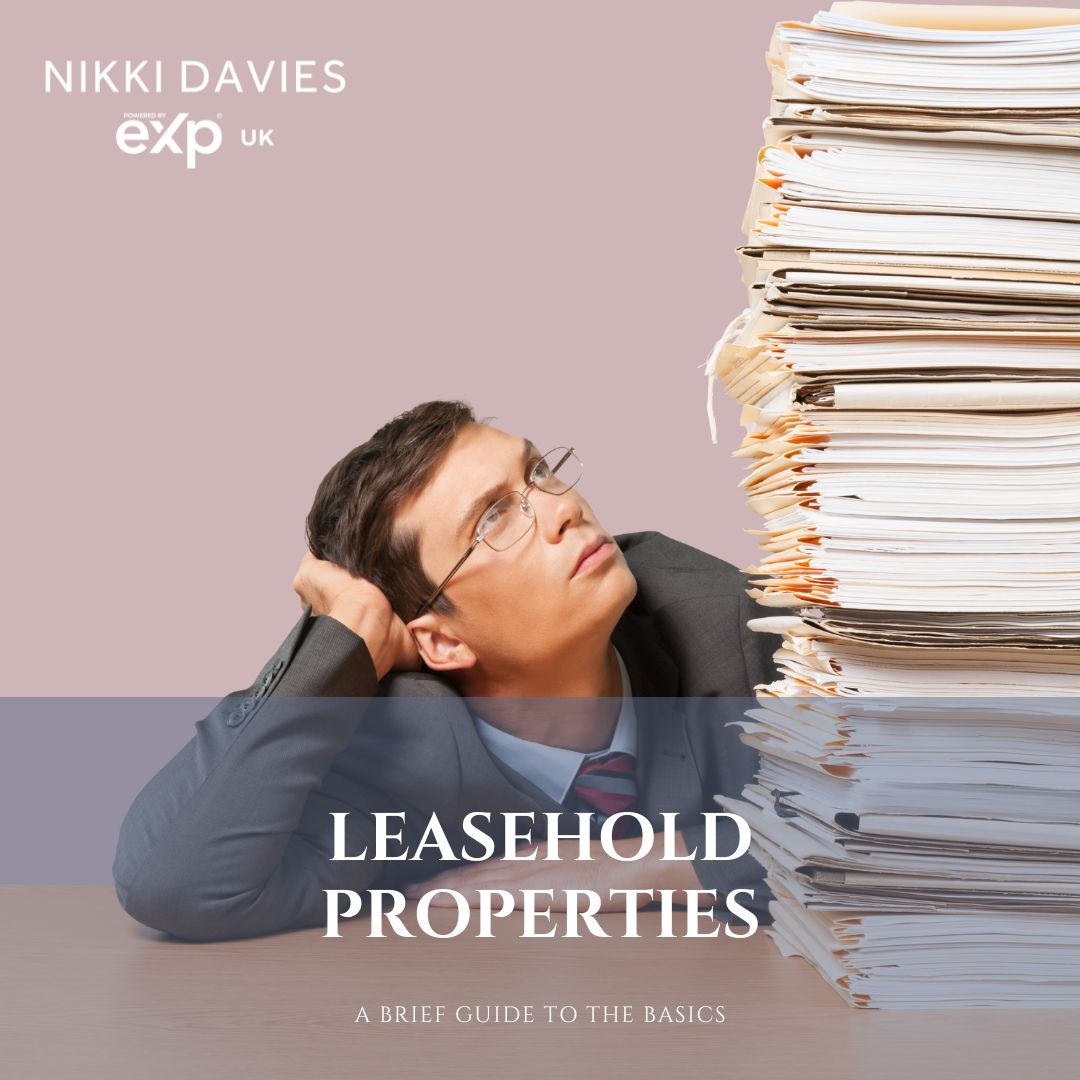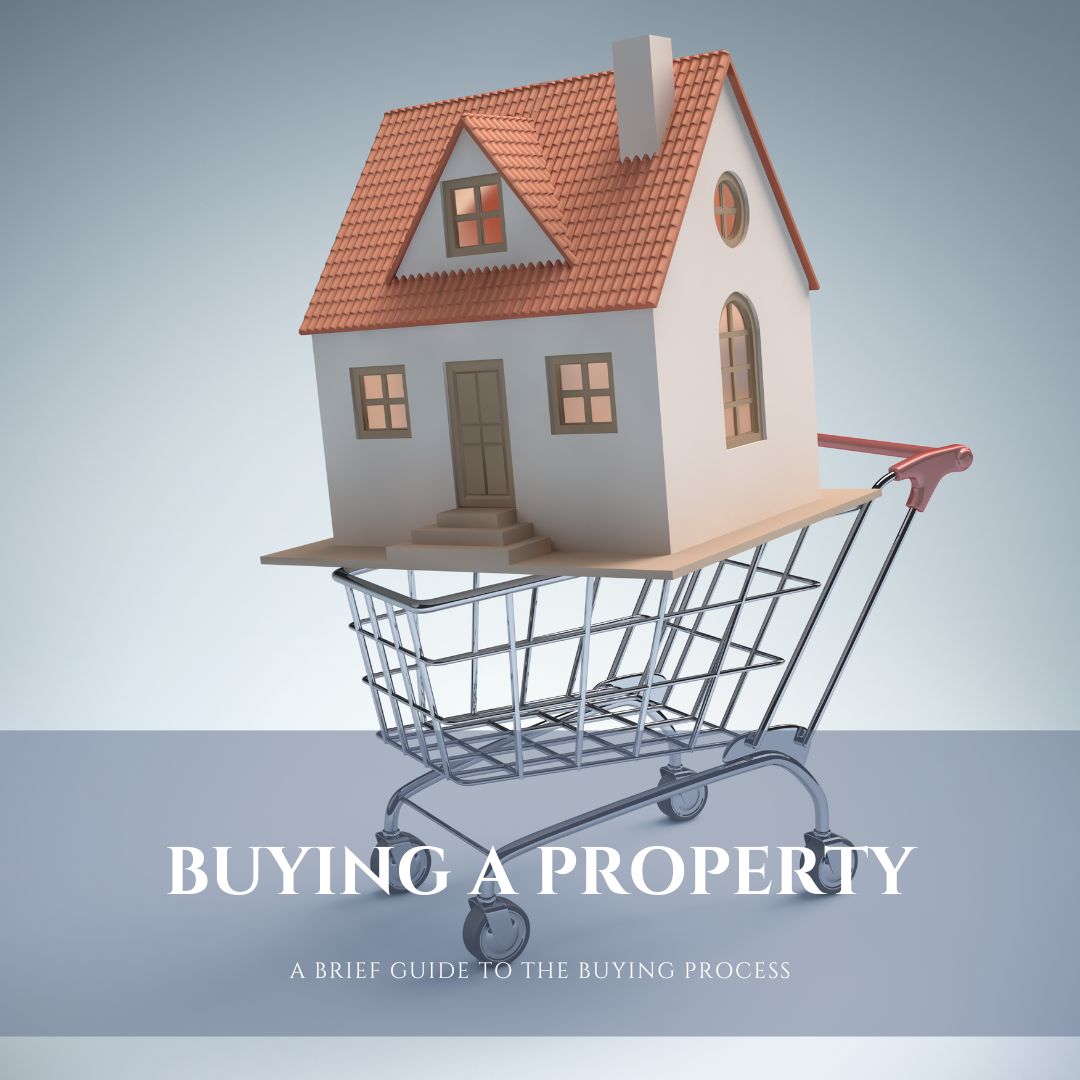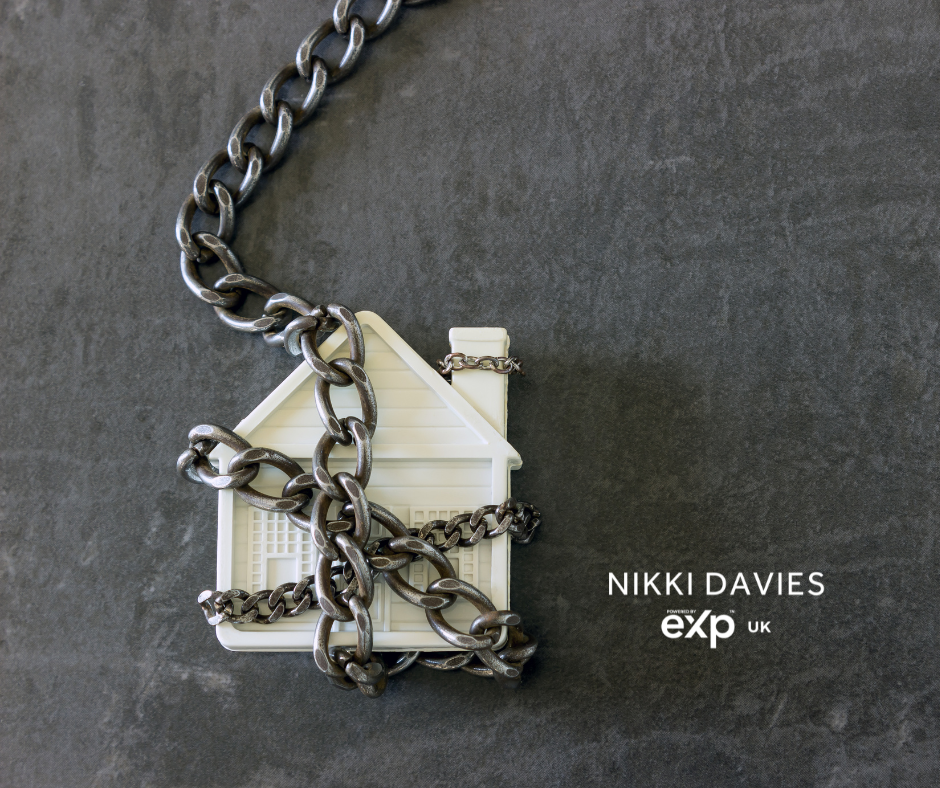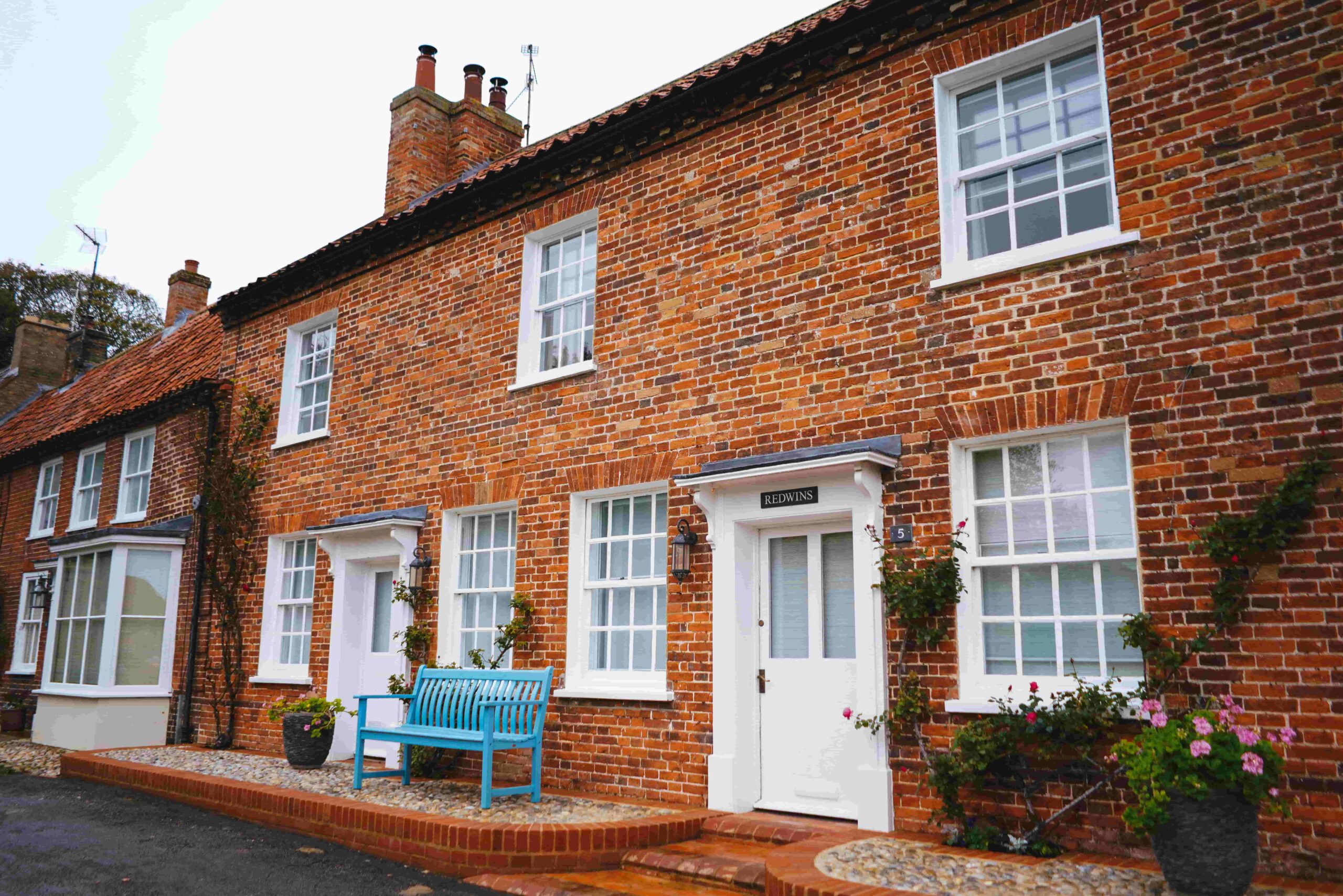Category: Uncategorized
Rightmove House Price Index Report – April 2023
April 24th, 2023
Rightmove-HPI-24th-April-2023-Final
Rightmove have published their latest report – a copy of the full report is appended.
” Agents are reporting that many sellers have transitioned out of the frenzied multi-bid market mindset of recent years and understand the new need to tempt Spring buyers with a competitive price. The current unexpectedly stable conditions may tempt more sellers to enter the market who had been considering a move in the last few years but had been put off by its frenetic pace.” Tim Bannister, Rightmove’s Director of Property Science.
Is now a good time to sell or buy for you personally? Get in touch today and let’s talk things through over a cuppa (Yorkshire Tea for me please!).
Get in Touch
Getting the BEST price for your property
April 12th, 2023
One of the most important things when you sell your home is to get the best price possible for your home. But how do you make sure you get the best price?
There are 4 contributing factors to getting the best price for your home. The one thing to remember in all this, is that it’s the buyer who is going to give you the best price – the agent, presentation and the marketing will contribute to that, but it is the buyer that will pay it. Getting a buyer to pay more than they want too, needs competition. So, to get more buyers, the first thing you need is eyeballs:
More Eyeballs = more clicks = more enquiries = more viewings = competition = more offers = the highest price.
Property Condition
To maximise the price for your house it needs to be in immaculate condition – I’m talking new kitchens, new bathrooms, new carpets – a show home basically…But ‘immaculate condition’ is not usually possible, so don’t panic…
If you haven’t got the time or money to make your property ‘immaculate’ with new kitchens, bathrooms, carpets and everything else, then make sure it is presentable, clean & tidy when people view.
Get rid of the kids & dog, but present it as it should be presented. Don’t hide all the toys when you are selling a 4 bed detached family home – that is what creates emotion from the buyer. And when a buyer becomes emotionally attached to your property and can see themselves living there, they will pay what it takes to realise their visualisation!
Portals & Online Presentation
Make sure your property is on Rightmove AND Zoopla. Zoopla have claimed in the past that 32% of their buyers don’t visit Rightmove, so by listing your house with an agent that only advertises on one of these sites, you are losing eyeballs.
The basic premise of selling your house nowadays (and before the internet came along), was the more eyeballs you got on the property, the more viewers you would get and the more competition you would create, which would force the price up.
It hasn’t changed much since the internet, because the more eyeballs you get, the more clicks your advert will get and the more viewers your agent will be able to arrange, which will lead to more competition.
And don’t forget social media. Social media is a bit like the newspaper back in the ‘good old days’ where someone who isn’t actively looking to buy a property spots yours on Facebook or wherever and that entices them to enquire – impulse buyers!
Choose the right agent
Make sure you choose an agent who has an incentive to sell your property. But don’t choose someone who is ‘desperate’ to sell your property.
An agent who is giving their own fees away is clearly not the best negotiator, so would you trust them with negotiating the best price on your house? And be careful about when the fee is paid – if they are charging you all up front, or regardless of sale (which some of the agents who advertise on the telly do), then they have absolutely no incentive to sell your house, which sort of defeats the object of trying to sell your house and move!
Choose the right marketing strategy
This is so important and is part of choosing the right estate agent, but the marketing strategy is different for every property. For example, don’t choose an agent that tells you the highest asking price – this could actually lead you to achieving less than had you asked a ‘medium’ asking price because of the length of time the property could end up sitting on the market for.
Similarly, don’t use open days if they’re not appropriate. Use a strategy that’s going to help you achieve the absolute best price – that might be an informal tender, it might be a lower asking price because there could be lots of competition in your area, it might just be selling in the ‘usual’ way. A good estate agent should come up with an entire plan for you and your property, which suits your circumstances.
Getting the best price for your home is ultimately a good mix of all of the above points, but it does all come down to the estate agent that you choose – where they advertise, what advice they give you and how good they are at negotiating!
To find out more, contact Nikki Davies, Powered by eXp.
Get in Touch
Buying a leasehold property
March 18th, 2023
Buying a leasehold property in the UK can be a complex process and in my experience, many buyers are wary of buying a leasehold property.
However, it doesn’t have to be that way. This basic guide will give you an overview of the steps involved in buying a leasehold property and help you understand the key terms and legal obligations that come with it. Obtaining this information at the outset can give you the assurance you need or help you make the decision to move on before incurring costs of not only your money but yours and your chain’s valuable time. And don’t panic, this is for your solicitor to investigate – not you.
What is a leasehold property?
A leasehold property is a type of property where the buyer purchases the right to use the property for a fixed period of time, known as the lease term. The property is owned by the freeholder or landlord who grants the lease to the buyer. The buyer of a leasehold property will be required to pay ground rent, service charges and other fees to the landlord or management company.
Understand the lease
The lease is a legal document that sets out the terms and conditions of the leasehold property. It is important to read and understand the lease before buying the property. The lease will specify the lease term, ground rent, service charges, repair obligations, and other important details.
Get legal advice
It is important to seek legal advice from a solicitor who is experienced in leasehold property transactions. Your solicitor will review the lease and advise you on any potential issues or concerns.
Check the lease term
The length of the lease is an important consideration when buying a leasehold property. A short lease can affect the property’s value and may make it difficult to sell in the future. It is recommended that you aim to buy a property with a lease term of at least 90 years.
Check the ground rent
Ground rent is a fee paid by the leaseholder to the landlord for the use of the land on which the property is built. It is important to check the amount of ground rent and how it will be reviewed over time. Some leases have clauses that allow the landlord to increase the ground rent significantly over the term of the lease and you will need this information from the outset.
Check the service charges
Service charges are fees paid by the leaseholder to the landlord or management company for the maintenance and upkeep of the building and common areas. It is important to check the amount of service charges and what they cover. You will also want to find out whether these are subject to increases, how much they could potentially increase by and how often. You should also ask to see the service charge accounts to ensure that they are being managed correctly.
Check for any restrictions
Some leases may contain restrictions on what the leaseholder can do with the property. For example, there may be restrictions on keeping pets, making alterations to the property or subletting. It is important to check the lease for any such restrictions.
Check the management company
If the property is managed by a management company, it is important to check their reputation and track record. You should ask to see the management company’s accounts and check that they are managing the property correctly.
Consider enfranchisement
Enfranchisement is the process of buying the freehold of a leasehold property. If the lease term is less than 80 years, it may be worth considering enfranchisement as this can increase the property’s value and reduce future costs.
Get a survey
It is important to get a survey of the property before buying a leasehold property. This will identify any potential issues or defects with the property that may not be obvious from a visual inspection.
Check the insurance
The landlord or management company will be responsible for insuring the building, but the leaseholder may be required to pay a share of the insurance premium. It is important to check the insurance policy and ensure that it provides adequate cover for the property.
Completion
Once all the necessary checks have been carried out, you can exchange contracts and complete the purchase of the property. You will be required to pay the purchase price and any associated fees and charges.
Get in Touch
Buying a property in today’s market
March 18th, 2023
Buying a house in England and Wales is a significant investment and a big decision that requires careful planning and consideration. With so many factors to take into account, it can be a daunting prospect, but with the right preparation, you can make the process much smoother.
Below, I have set out the basic steps involved in buying a house here in the UK.
Determine Your Budget
The very first step is to determine your budget. This will help you identify properties that you can realistically afford. You can work out your budget by considering your income, savings, and any other financial commitments you have, such as debts and bills. You can also use online mortgage calculators to estimate how much you can borrow from lenders but the best route is to use a mortgage broker who can source the very best deals appropriate for your circumstances. Whilst they may charge for their services, they often have access to rates not available on the open market.
Get a Mortgage Agreement in Principle
This is a conditional offer from a lender stating how much they would be willing to lend you based on your financial circumstances. Having this agreement in place will put you in a stronger position when making an offer on a property.
Select Your Area
Once you have a budget in mind, the next step is to identify suitable areas where you would like to buy a house. You can use online property portals such as Rightmove and Zoopla to search for properties in your desired locations. I would strongly advise you spend some time in the areas to get a feel for them and see if it suits your needs – think about the amenities you want and need on your doorstep. Do you have to commute? By train? Bus? Road network? Rent a room for a couple of nights and test your commute. Get this right and narrow this down from the start. A scattergun approach seldom works and you’ll end up viewing tens of properties with no clear aim.
View Properties
Once you have identified suitable areas and have a mortgage agreement in principle, the next step is to start viewing properties. Make sure you view several properties and take note of their condition, location, and price. If you find a property you like, it’s worth arranging a second viewing to get a better sense of the property’s condition and suitability.
Make an Offer
If you find a property that you would like to buy, the next step is to make an offer. Your offer should be based on the property’s value and your budget. Once you make an offer, the seller will either accept, reject or make a counteroffer. If your offer is accepted, the next step is to instruct a solicitor to start the conveyancing process and, if you want some reassurance on the condition of the property you are buying, instruct a survey – at the outset, so there are no nasty surprises later on.
Mortgage Application
Once your offer is accepted, if you require a mortgage, you will need to formally apply. Your broker will help you with this and ensure the lender you approach is likely to accept your application – multiple applications can be detrimental to your credit rating. In most cases, the lender will instruct a Chartered Surveyor to carry out a valuation to ensure the property is suitable security for lending purposes – this is not the same as the condition survey you instruct for yourself. Once the valuation is agreed (there can sometimes be a difference of opinion here, especially if you have bid over the asking price so be aware of this), the underwriters will look at the application in greater depth and give you a decision – if agreed, your mortgage offer will be issued.
Conveyancing
Conveyancing is the legal process of transferring ownership of a property from the seller to the buyer. Your solicitor will handle the conveyancing process, which involves an in depth look at the property you are intending to purchase including searches (which should be ordered from the outset) and they will also advise you on any legal issues and make sure that the property’s title is free from any restrictions or problems.
The process can take anywhere from 6 weeks to 6 months depending on the complexity of the matter and time taken to source the information.
Exchange Contracts and Complete the Purchase
Once the conveyancing process is complete, you will exchange contracts with the seller. At this stage, you are legally committed to the purchase and you will need to pay a deposit, usually 10% of the purchase price. The completion date will also be agreed upon, which is when you will pay the remaining balance (when your mortgage comes into effect) and take ownership of the property.
The process is hard to navigate and you need a good team around you:
- A proactive and straight talking estate agent
- An independent mortgage consultant
- A communicative, responsive and proactive solicitor who asks the right questions from the outset.
Remember to take your time, do your research, and seek professional advice at every stage of the process. Contact me to talk further about making your move.
Get in Touch
5 Reasons to Downsize Your Home in the New Year
January 2nd, 2023
The new year is a time for fresh starts, and what better way to start the year off right than by downsizing your home? There are many benefits to downsizing, including saving money, decluttering your life, and reducing your carbon footprint. Here are 5 reasons why you should consider downsizing your home in the new year.
1. Save Money: One of the biggest benefits of downsizing your home is that you will save money. A smaller home means lower mortgage payments, lower utility bills, and less maintenance costs. If you’re looking to reduce your expenses in the new year, downsizing your home is a great place to start.
2. Declutter Your Life: A smaller home also means less stuff. If you’re looking to declutter your life and simplify things in the new year, downsizing is the way to go. Getting rid of all that extra stuff will free up time and energy that you can put towards things that are more important to you.
3. Reduce Your Carbon Footprint: Another benefit of downsizing your home is that you’ll be doing your part to reduce your carbon footprint. A smaller home means less energy consumption, which is good for the environment. If you’re looking to live a more sustainable lifestyle in the new year, downsizing your home is a great way to start.
4. More Time for What Matters Most: Downsizing your home will also give you more time for things that matter most to you. With a smaller home, there will be less cleaning and upkeep required. This will free up time that you can use to spend with family and friends, pursue hobbies, or just relax. If you’re looking to make more time for yourself in the new year, downsizing is a great option.
5. A Fresh Start: Finally, downsizing gives you a chance for a fresh start. If you’re looking for a change of pace in the new year, downsizing your home is a great way to do it. Moving into a smaller space can be invigorating and help you feel like you’re starting anew. If you’re feeling stuck in a rut, downsizing may be just what you need.
As you can see, there are many benefits to downsizing your home in the new year. If you’re looking to save money, declutter your life, reduce your carbon footprint, or just have a fresh start, downsizing may be right for you. So what are you waiting for? Start planning your move today!
6 Ways to Save Money for a New Home in the New Year
December 23rd, 2022
The new year is the perfect time to start fresh, and what better way to start fresh than by saving up for a new home? With these six simple tips, you can easily save up enough money for a deposit on your dream home.
1. Make a budget and stick to it: One of the best ways to save money is to know exactly where your money is going. Track your spending for a month so you can see where you can cut back. Once you have a good idea of your spending patterns, you can create a budget that allocates your money in a way that makes sense for you. And sticking to that budget will be key to saving up for your new home.
2. Automate your savings: One of the best ways to make sure you stick to your savings goals is to automate them. Set up a separate savings account and have a certain amount of money automatically transferred from your everyday account to your savings account each month. This way, you’ll never even see the money and you’ll be less tempted to spend it.
3. Get rid of unnecessary expenses: Take a close look at your budget and see if there are any areas where you can cut back on expenses. Do you really need that gym membership? Is that streaming service really worth it? Cutting out unnecessary expenses will free up more money that you can put towards your new home fund.
4. Boost your income with side hustles: In addition to cutting back on expenses, you can also boost your income by picking up some side hustles. Do some freelance work, start a blog or an online business, or even just pick up some extra hours at work. Any extra money you make can go straight into your new home fund.
5. Get creative with your living situation:
If you’re renting an apartment or house, now is the time to start thinking about ways to reduce your housing costs. One option is to get roommates or move in with family members. Another option is to downsize to a smaller place. While it may not be ideal in the short-term, making sacrifices like this now will pay off in the long run when you’re finally able to buy the home of your dreams.
6. Start selling things you don’t need anymore: One person’s trash is another person’s treasure, as they say. If you have any unwanted items around the house gathering dust, now is the time to sell them and put that extra cash towards your house fund. From clothes and furniture to electronics and knick-knacks, chances are there’s someone out there who would love to buy what you no longer want or need—and they’ll be happy to pay you for it!
Saving up for a new home doesn’t have to be difficult–with these six simple tips, you can easily reach your savings goals and enjoy the satisfaction of owning your own home sooner than you thought possible!
Ready to take the next step? Get in touch with me today,
Summer Round Up – September 2022
September 4th, 2022
The last few weeks have been as busy as ever despite my promising to take a step back for the month of August!
Personally, I managed to enjoy some downtime including a wonderful day spent at the Rewind North festival held at Capesthorne Hall near Macclesfield. The highlight for me was seeing Jason Donovan (my childhood crush) plus amazing sets from Belinda Carlisle, Midge Ure, The Human League, Chesney Hawkes and Soul II Soul. The family then spent a week ‘house sitting’ on a farm for a relative and then we flew out to Malta for a sunshine filled 11 night break – pure bliss!
This was the first time I had been away for such an extended period as a small business owner and I learned there is no such thing as ‘getting away from it all’.
Whilst I managed to speak to every buyer, seller and prospective client prior to departing, I remained available throughout and even launched two properties to the market from over 2,000 km away (the joys of tech!). With 15 sales going through and issues arising daily, there really is no rest for the wicked!

Two issues I am seeing constantly at the moment are in relation to the expiry of mortgage offers and the speed at which conveyancing solicitors are dealing with matters.
If we look back six months, interest rates were stable and it was fairly easy to get a mortgage. If you were waiting for a specific property, you could quite easily renew the mortgage and you would pretty much be guaranteed the same rate. Fast forward to today and the mortgage offer you had a few months ago based off a much lower Bank of England rate is no longer available and at 1.75% today, your monthly payments could be hundreds of pounds more than before; and this could mean that the property you had originally thought you could afford, is now out of reach.
This means that anyone with a mortgage offer due to expire in the next couple of months is now in a position where they may lose their property and so they are piling on the pressure with the other people in the chain and conveyancers.
Conveyancers were already working at maximum capacity and with clients needing them to work faster, this is compounding the issue.
Despite the difficulties, we have completed on three properties in the last four weeks and it has been an absolute joy to see some truly lovely people moving on to the next chapter in their lives. Congratulations guys!
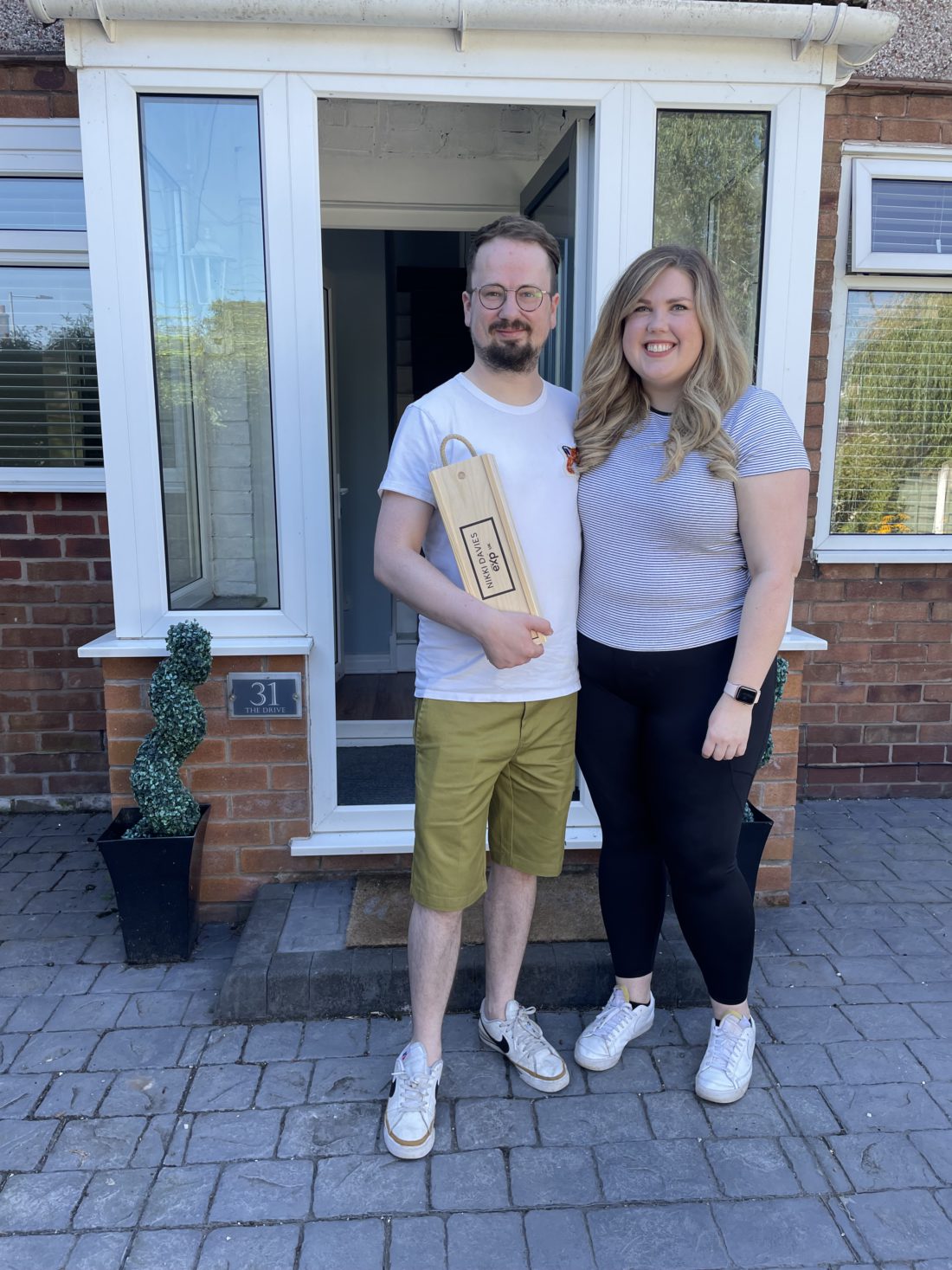
This month we have launched two properties to the market and here’s a bit more about them.
Manor Road, MARPLE
As soon as I set foot in to this property I fell in love. The house itself is so attractive and the rooms are such a great size but my favourite part is the garden. Southwest facing and private with a vast expanse of lawn (and a gorgeous plum tree). What also struck me is the share potential of the property with plenty of room at the back for a rear extension and the potential to build up into the roof; I could just imagine building a master suite with a super luxurious ensuite and a walk-in wardrobe to die for. There are some amazing views to the front and the location is just perfect.

Carlton Avenue, MARPLE
This is the third property I have been asked to sell on this wonderful road in the centre of Romiley. These Edwardian semis are just so gorgeous and each one is quite unique with changes made over the years. Number 5 Carlton has been extended to the rear and bedroom two has A balcony with views over Romiley Park.
Unusually we launched with just one photograph as my seller client is still making some home improvements prior to viewings starting.
I can’t wait to get in to see what they have done.
Just one more thing, if you are hoping to move by Christmas (eek, I said it!) you really need to get on the market NOW! If you or anyone you know is thinking of moving or struggling to sell, get in touch today and let’s chat about getting you to where you want to be.
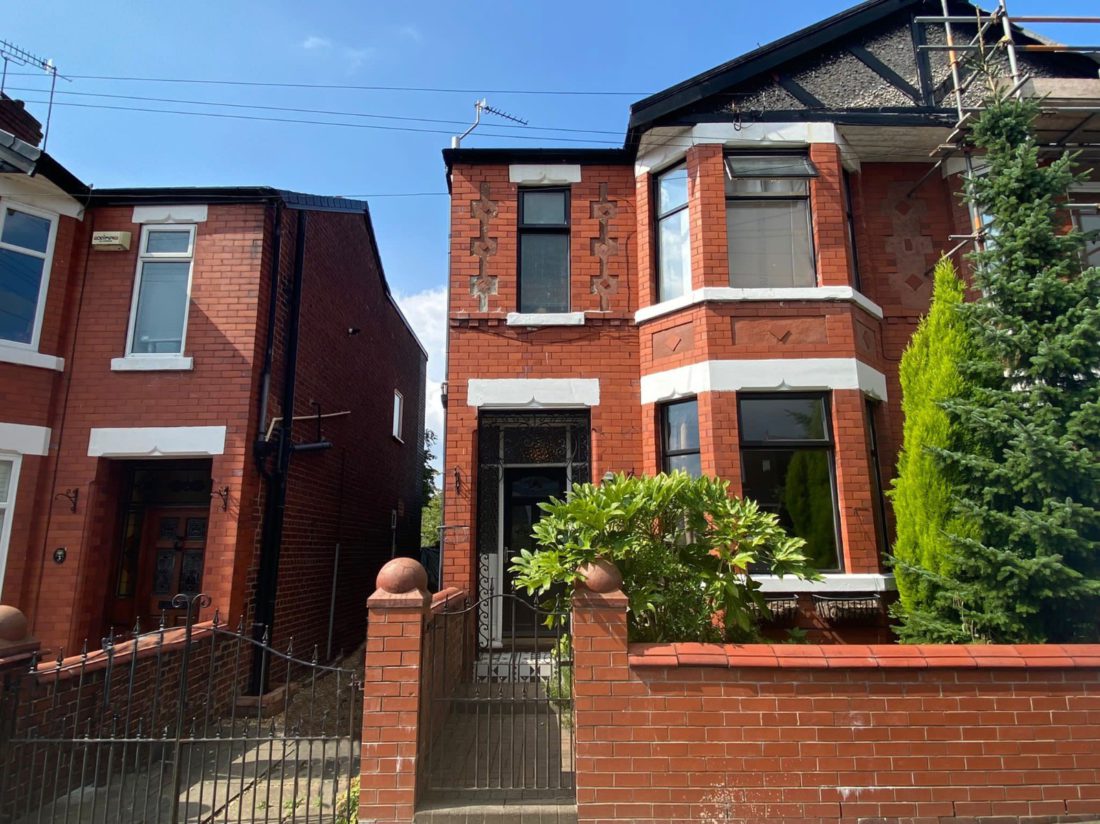
How long does it take to move in 2022?
July 20th, 2022
Believe it or not, if you’re thinking of moving, based on the average time it takes to buy a home, you will need to start your search and get your property on the market right about now!
Check out this blog on Rightmove…
How to keep your property sale on track
July 5th, 2022
Buying and selling a property can be super stressful and it is my mission is to ensure things go as smoothly as possible for my clients and the related sales.
It might be that you’re ready to move, but the people buying your house need their buyers to get up to speed. And those buyers also need their buyers to press the pedal down on the transaction!
More than one property means you are in a chain and we know that sometimes chains can break, taking with them your hopes of a move into a dream property.
This can be absolutely heartbreaking. Consumer body Which? surveyed 2,000 homemovers, and discovered that almost 30% of people have experienced a property purchase falling through.
There are several reasons why a property chain breaks, however, the good news is that you can do something about it and play your part in making sure things keep moving.
Here are my top tips.
- Choose a Chain-Free Buyer
You need to select the person most likely to complete. Whilst it’s hard to predict human behaviour, the facts speak for themselves. If a ‘chain free’ buyer makes an offer ie they don’t need to rely on a sale in order to move, they would be in a very strong position and better still if they have a large deposit or even cash, it’s a no brainer.
That said, an offer from a buyer in a short chain should not be entirely discounted. They themselves may have a chain free buyer beneath them or perhaps they have a chain that is almost at exchange. Your agent should carry out due diligence on all potential purchasers and submit this to you along with the offers.
- Set Your Timelines Out
When you are right at the beginning of the process with a potential buyer, make sure you stipulate, through your estate agent, your preferred timescales. Things may not always stick to plan, but if you are all aware of a date you are working towards, it will focus minds.
Top Tip: Be realistic. You may want your move to progress at lightning speed, but selling your home can be a complex process and take so much longer than you anticipate.
- Be Prepared
When you’re thinking about property chains, it’s easy to think about what all the other parties are doing and focus on how they can stop your chain from breaking. But don’t forget, you’re part of the chain too, so don’t be the one who holds things up! Make sure your paperwork is in order, finances organised and mortgage offers are on the table.
Top Tip: I advise my clients to instruct a solicitor and complete the relevant ID checks and paperwork at the point of marketing. That way, once an offer is accepted, the solicitor can send draft contracts out straight away saving up to two weeks at the very beginning.
- Be responsive
Keeping a chain moving takes good communication from all parties, and that includes you. Your conveyancer may need information quickly or an email response before close of business on a particular day. Be accessible, and make sure everyone has the correct contact details for you.
Top Tip: Respond to any queries promptly to avoid delays in clarification. If you need to seek out information that you don’t have to hand, don’t put it off! Eat that frog! (Mark Twain)
- Buy cheap, pay twice – Use Experienced Professionals
Remember that your property is probably your most valuable asset so you MUST ensure that you have the best team around you. Choose your estate agent, not necessarily on their fees, but on their experience and ability to keep things moving. You want them to be progressing and chasing where necessary, making the calls and sending the emails.
Top Tip: Draw up your shortlist of reputable, local estate agents and speak with each of them. You need a good relationship with your agent so making sure you are on the same wave-length and you get a good vibe is important. Remember, how they act with you is also how they will act with potential buyers!
- Think Outside the Chain
If there’s a problem with the house chain further up, consider selling your property and renting somewhere to live until the right property comes up for you rather than risk losing your own buyer. This could be a great option if you are selling in a heated market as what goes up may come down and you could be quids in, even taking rent into account. PLUS you become that chain free buyer if you make an offer whilst in a rental.
Top Tip: Renting doesn’t have to be forever and there are other options out there these days such as Air BnBs or holiday lets. You can usually enter into a short-term tenancy agreement which will give you time to look around and find somewhere at your leisure.
- Be Agile
Should a property chain break, and you lose the property you were going to buy, make sure you can move quickly when it comes to other alternative properties. Is it possible for the chain to discuss the issues and come to an agreement, perhaps to negotiate on prices?
Top Tip: If you’re ready for all eventualities, then a broken chain may not mean a broken heart.
To discuss this and anything property related, contact me today.
5 reasons a property transaction falls through (and how to navigate it)
May 27th, 2022
There are plenty of reasons why a house sale or purchase can fall through. Generally those reasons fall into five categories.
A chain that breaks
If you’re buying a home which isn’t your first, there’s a chance you’re in a chain. This means several purchases and sales rely on each other to complete. Of course, these transactions are out of your control.
They can be unpredictable, difficult and complicated, and you need to have a good agent and a good solicitor acting for you to help guide you through.
To understand the impact this can have on you, take a look at this very helpful video from the incredibly helpful Phil Spencer (he of Location Location Location fame).
Nervy survey
In most cases, buyers will opt to have a survey on the property to ensure they don’t come across any surprises when they move in.
A poor survey report doesn’t mean the end of the transaction! In many cases, renegotiation can be the answer, and a bit of give and take on both sides will do the trick.
Where a property is found to be structurally questionable, it is highly likely that the buyer will pull out – the deal then collapses and the seller is left to address the issues raised.
Bear in mind that agents cannot then remarket the property without informing new buyers of the issues raised. In the event the issues are addressed, the agent is obliged to disclose those issues and state that they were subsequently addressed.
Money matters
Contrary to popular belief, an agreement in principle doesn’t guarantee that you will be able to obtain finance for a property. It is ‘in principle’ and doesn’t take into account the details relating to that specific property.
There are many reasons why a lender may refuse a buyer a mortgage. These include factors such as a change in their circumstances (job loss, risk of redundancy) or an incorrectly completed application form.
The biggest issue facing buyers and sellers nowadays is ‘downvaluations’ (which many valuers would argue is not an acceptable term)!
With so many properties going to ‘best and final’ offers, buyers are resorting to overbidding. When a valuer then comes to check that the property stacks up for loan security purposes, they can find no evidence to support the price offered.
This results in a ‘downvaluing’ of the property – leaving the buyer short on finance and having no choice but to either find the money from another source or renegotiate.
Alternatively, they will withdraw from the purchase. I advise all my sellers that they must carefully consider gargantuan offers from those requiring a mortgage as this is a very real risk.
Gazumping and gazundering
Gazumping is where a seller initially accepts an offer from a buyer, and then subsequently finds another buyer willing to pay a greater sum.
A buyer can also lower their offer at any stage, usually at the last minute. Both practices are frowned upon (totally immoral), but unbelievably, they are legal up until the exchange of contracts.
Change of heart (or circumstance)
Sometimes it’s simply a case that we humans change our minds. This is one of the most frustrating reasons, especially when you have committed time, energy and money, but there is little you can do about this. Again, all perfectly legal up until exchange of contracts.
Ultimately so much of the process is out of your control and in almost every instance, you are putting your trust and faith into complete strangers to do what they say they are going to do. My advice to you would be to work closely with both the agent selling your property and the agent of the property you are buying and, probably most important of all, use a solicitor who has been recommended by a friend, family or trusted advisor. Look for evidence of their responsiveness and willingness to speak to you the client on the telephone or by email. And pay attention to the adage, “buy cheap, pay twice”.
If you would like any advice on the house buying and selling process, I’m happy to help.






